Quick Tips for SMS Customer Service Excellence
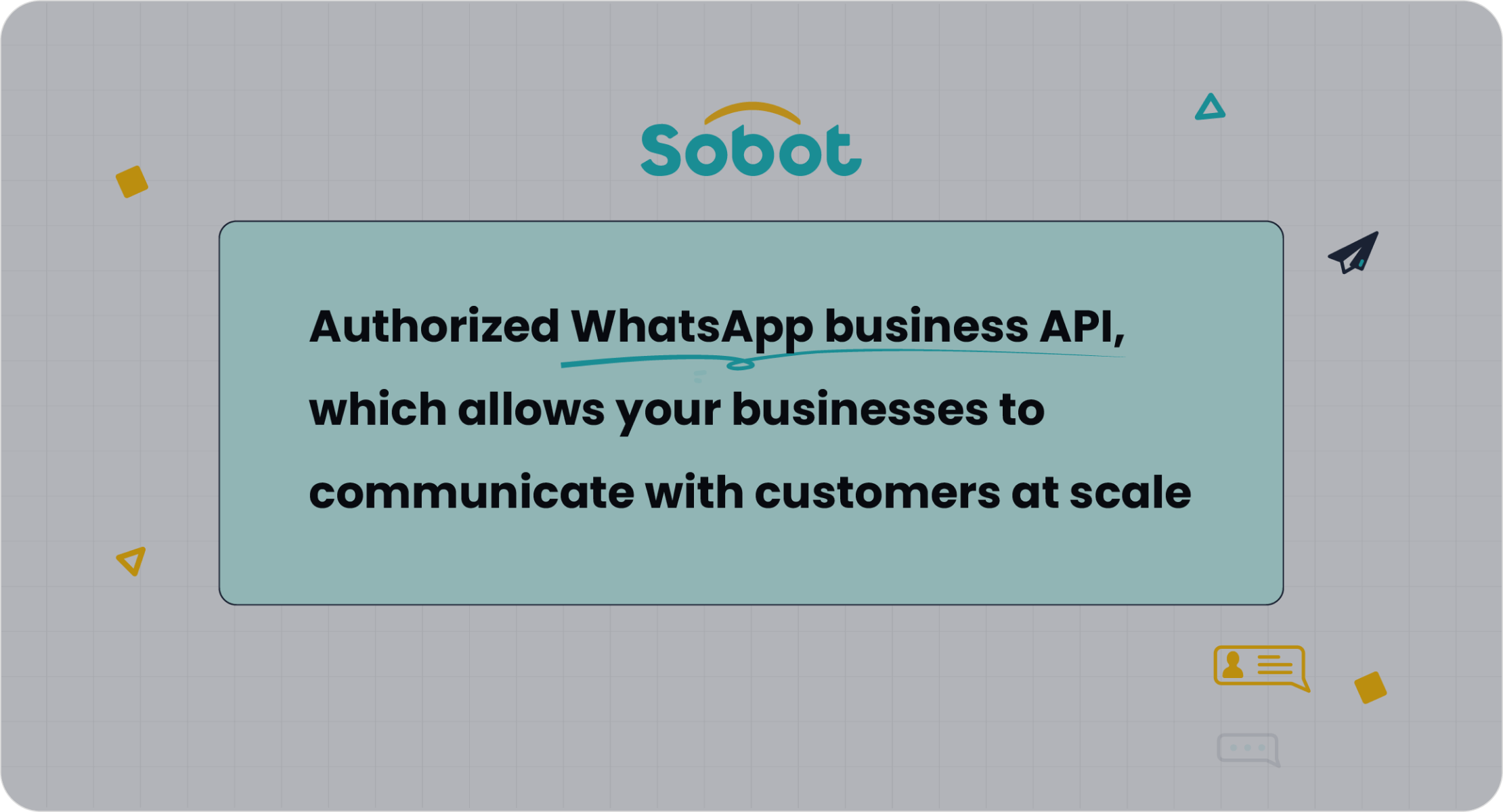
SMS has revolutionized customer service, becoming a cornerstone of communication in 2025. With an open rate of up to 98%, SMS ensures your messages reach customers almost instantly. Over 64% of consumers now prefer SMS for its speed and convenience, making it a vital tool for businesses. Quick response times, averaging just 90 seconds, highlight its unmatched efficiency in addressing customer needs.
Personalization and compliance are equally critical. Tailored messages foster stronger connections, while adherence to regulations builds trust. Sobot, a leader in customer service text messaging, empowers businesses with innovative solutions like the WhatsApp Business API. These tools enable seamless, scalable communication, ensuring you stay ahead in delivering exceptional service.
Why SMS Customer Service Matters in 2025
The Evolution of Customer Service Text Messaging
Meeting Modern Customer Expectations
Text messaging has come a long way since the first SMS was sent in 1992. Over the years, it has evolved from basic text exchanges to a dynamic communication tool enriched by emojis, Multimedia Messaging Service (MMS), and AI-powered chatbots. Today, SMS plays a pivotal role in meeting the fast-paced demands of modern customers.
Consumers expect quick responses, and SMS delivers. Studies show that 59% of SMS responses occur within five minutes, while 77% happen within 15 minutes. This immediacy aligns perfectly with the expectations of today’s customers, who value speed and efficiency above all else. Businesses using customer service text messaging report a 217% higher success rate in engaging their audience, proving its effectiveness in meeting modern needs.

SMS as a Preferred Channel for Quick Support
SMS has become the go-to channel for quick customer support. Its simplicity and accessibility make it ideal for resolving issues in real time. Unlike emails or phone calls, SMS doesn’t require customers to wait on hold or navigate complex menus. Instead, it provides a direct line to assistance.
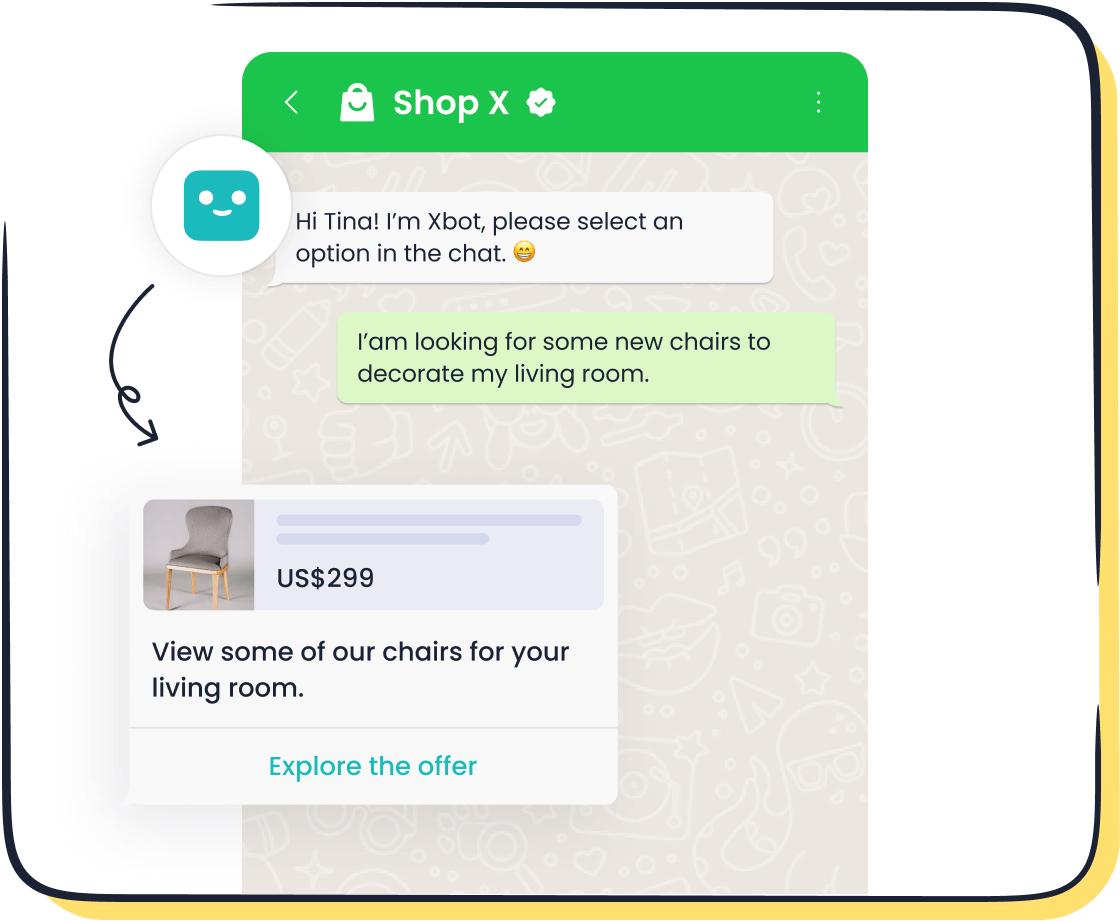
For example, Sobot’s WhatsApp Business API enhances SMS capabilities by integrating features like smart chat routing and 24/7 chatbot support. These tools ensure that customers receive instant help, no matter the time of day. This level of responsiveness builds trust and keeps customers coming back.
The Role of SMS in Omnichannel Customer Engagement
Enhancing Accessibility Across Industries
SMS bridges the gap between businesses and customers across various industries. Whether in retail, finance, or logistics, it ensures seamless communication. Brands that integrate SMS into their omnichannel strategies see a 47.7% increase in customer engagement. This makes it a vital component of any comprehensive customer service strategy.
Sobot’s solutions, such as the WhatsApp Business API, further enhance accessibility. Features like bulk messaging and workflow automation allow businesses to reach customers at scale while maintaining a personal touch. This ensures that no matter the industry, SMS remains a reliable and effective communication tool.
Building Trust Through Instant Communication
SMS fosters trust by providing instant and transparent communication. Customers appreciate receiving timely updates, whether it’s a delivery notification or a service confirmation. According to experts, SMS serves as a critical connector in omnichannel strategies, offering a direct line to consumers that other channels can’t match.
For instance, J&T Express used Sobot’s WhatsApp Business API to improve delivery accuracy and customer satisfaction. By leveraging SMS for address confirmations and updates, they achieved a 35% increase in delivery rates. This example highlights how SMS builds trust and strengthens customer relationships.
Key Benefits of SMS for Customer Service
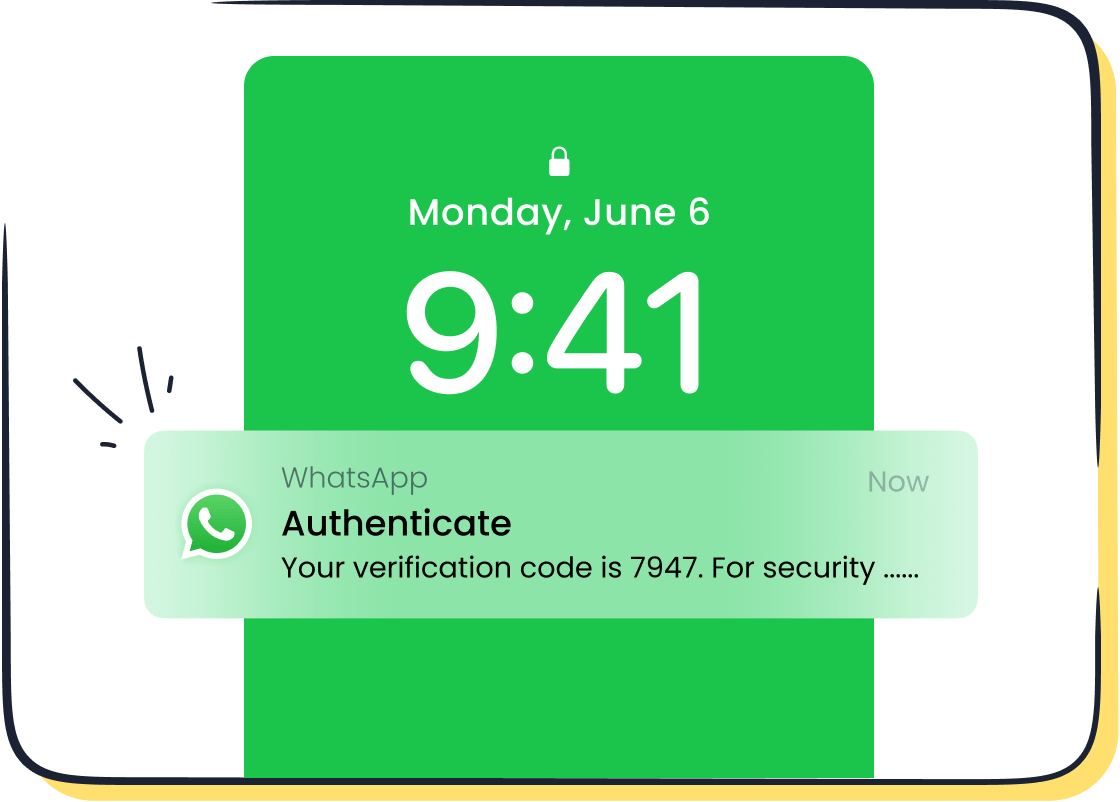
Immediacy and Convenience
Faster Response Times for Customer Queries
SMS stands out as one of the fastest communication methods available today. Customers expect quick answers, and SMS delivers with an average response time of just 90 seconds. Compared to email, which has a response rate of only 8%, SMS achieves a remarkable 45% response rate. This speed ensures that your customers feel heard and valued, which directly contributes to improved customer service.
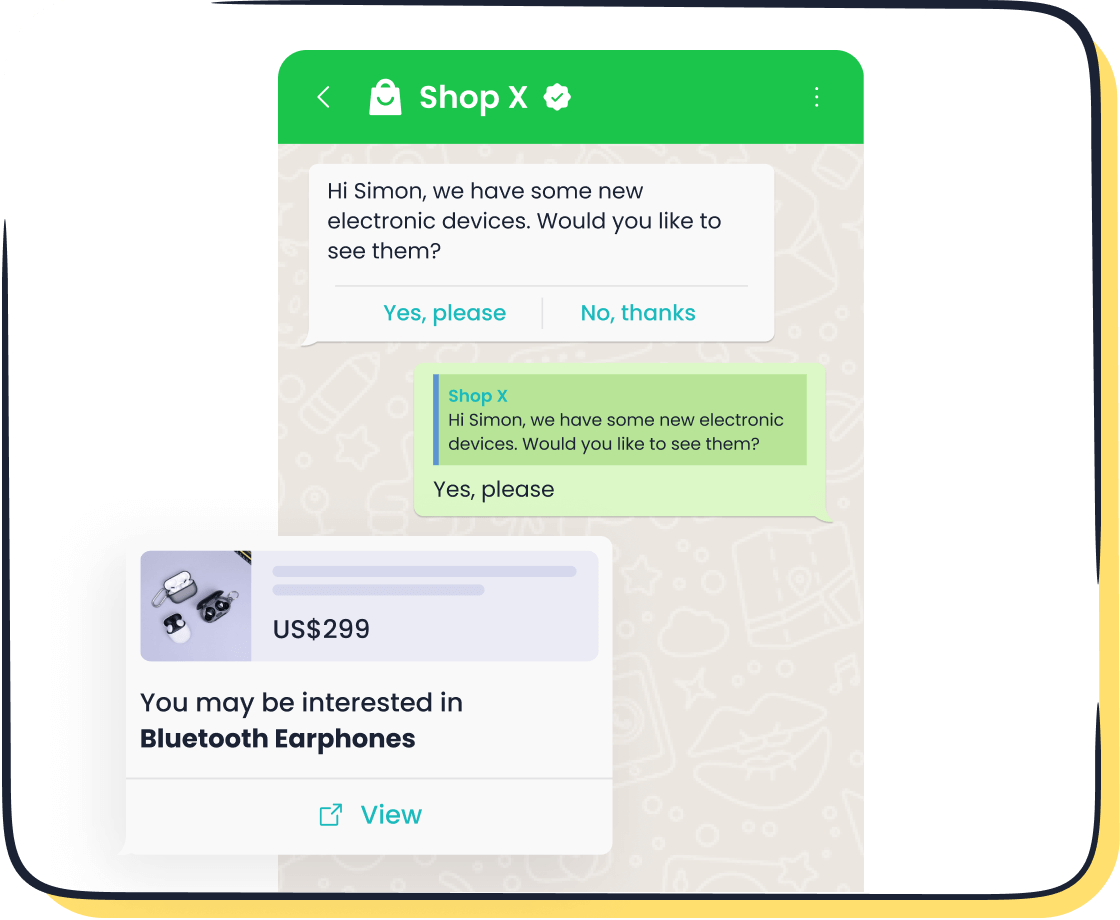
For example, integrating tools like Sobot’s WhatsApp Business API can further enhance response times. Features such as smart chat routing and automated replies ensure that no query goes unanswered, even during peak hours. This immediacy not only boosts customer satisfaction but also strengthens your brand’s reputation for reliability.
24/7 Availability with Tools Like Sobot's WhatsApp API
Your customers don’t operate on a 9-to-5 schedule, and neither should your support. SMS, combined with solutions like Sobot’s WhatsApp Business API, ensures round-the-clock availability. The API’s 24/7 chatbot support handles inquiries at any time, providing instant answers to common questions. This feature is particularly effective for time-sensitive campaigns, where delays could lead to missed opportunities.
By offering continuous support, you can cater to global audiences and different time zones. This accessibility enhances SMS engagement and ensures that your business remains responsive, no matter when customers reach out.
Personalization Opportunities
Tailored Messages Using Customer Data
Personalized messages are a game-changer in customer service. Research shows that 91% of consumers are more likely to engage with brands that offer tailored recommendations. SMS allows you to leverage customer data to create messages that resonate. For instance, you can send birthday discounts or recommend products based on past purchases.
Sobot’s WhatsApp API takes this a step further by integrating with customer data platforms. This enables you to craft highly relevant SMS marketing campaigns that feel personal and thoughtful. Such strategies not only drive increased conversions but also foster long-term loyalty.
Strengthening Relationships Through Relevant Communication
Building strong customer relationships requires consistent and meaningful interactions. SMS excels in this area by delivering timely and relevant updates. Whether it’s a shipping notification or a personalized thank-you message, SMS keeps your customers informed and engaged.
Brands that incorporate SMS into their omnichannel strategies see a 47.7% boost in customer engagement. This demonstrates how effective SMS marketing can deepen connections and enhance customer satisfaction. By focusing on relevance, you can turn one-time buyers into loyal advocates.
Cost-Effectiveness
Reducing Operational Costs with Scalable Solutions
SMS offers a cost-effective way to scale your customer service operations. Pricing models like pay-as-you-go or monthly plans make it affordable for businesses of all sizes. For instance, domestic SMS costs range from $0.01 to $0.03 per message, while international SMS costs between $0.05 and $0.15. These low costs allow you to grow your SMS list without straining your budget.
Sobot’s WhatsApp API further optimizes costs by automating workflows and reducing manual tasks. This scalability ensures that you can handle high volumes of messages without compromising on quality or efficiency.
Optimizing Resources for Better ROI
Investing in SMS as part of your customer service strategy delivers measurable returns. With higher response rates and faster resolutions, SMS campaigns drive increased conversions and customer satisfaction. Additionally, automation tools like Sobot’s WhatsApp API free up your team to focus on complex issues, maximizing productivity.
By combining affordability with effectiveness, SMS proves to be a smart investment. It not only reduces costs but also enhances your overall ROI, making it an essential component of any modern customer service approach.
Quick Tips for SMS Customer Service Excellence
Keep Messages Clear and Concise
Use Simple Language for Better Understanding
When crafting SMS for customer service, simplicity is key. Avoid jargon or overly technical terms that might confuse your audience. Instead, use straightforward language that anyone can understand. For example, instead of saying, "Your order has been dispatched," you could say, "Your package is on its way." This approach ensures clarity and keeps your communication accessible to all customers.
Clear messages also reduce the chances of miscommunication. A well-written SMS saves time by eliminating the need for follow-up questions. This practice is especially important in e-commerce, where customers expect quick and accurate updates about their orders.
Avoid Overloading Customers with Information
An SMS should deliver one clear message at a time. Overloading customers with too much information can overwhelm them and reduce the effectiveness of your communication. For instance, instead of listing multiple promotions in one text, focus on a single offer. This strategy not only improves readability but also increases the likelihood of customer engagement.
To measure the success of your SMS campaigns, track metrics like delivery rates, open rates, and response rates. The table below highlights key metrics to monitor:
| Metric | Description |
|---|---|
| Delivery rates | Percentage of messages successfully delivered. |
| Open rates | Percentage of messages opened by recipients. |
| Response rates | Percentage of messages that receive replies. |
| Customer satisfaction | Feedback and survey responses received via SMS. |
| Resolution times | Time taken to resolve customer issues reported via SMS. |
| Conversion rates | Success of promotional or call-to-action messages. |
Ensure Compliance with SMS Marketing Best Practices
Obtain Explicit Customer Consent (Opt-In)
Compliance is a cornerstone of SMS marketing best practices. Always obtain explicit consent before sending messages to your customers. This ensures you respect their privacy and adhere to legal requirements. For example, in the United States, the Telephone Consumer Protection Act (TCPA) mandates businesses to secure written consent before sending promotional texts.
Using a double opt-in process can further enhance compliance. This method confirms the customer’s interest and reduces the risk of complaints. Additionally, storing consent records securely helps you stay prepared for audits or legal inquiries.
Provide Easy Opt-Out Options
Giving customers the freedom to opt out of SMS communications is not just a legal requirement—it’s also a best practice. Include clear instructions in every message, such as "Reply STOP to unsubscribe." This transparency builds trust and ensures your SMS campaigns remain customer-friendly.
Different regions have specific regulations for SMS marketing. The table below outlines key compliance practices across various regions:
| Region | Key Regulations and Best Practices |
|---|---|
| United States | Research the TCPA and FCC rules; follow CTIA guidelines. |
| European Union | Review GDPR for data protection; obtain explicit consent and provide opt-out mechanisms. |
| Canada | Understand CASL; require express consent and include opt-out instructions. |
| Australia | Familiarize with the Spam Act 2003; obtain consent and provide clear opt-out instructions. |
| United Kingdom | Review PECR and GDPR; ensure specific consent and provide clear opt-out options. |
| Japan | Understand the Act on Regulation of Transmission of Specified Electronic Mail; obtain prior consent. |
| India | Familiarize with TCCCPR; obtain prior consent and register with NDNC. |
| Brazil | Review LGPD for personal data protection; obtain explicit consent and provide clear opt-out instructions. |
Personalize Communication
Leverage Customer Data for Tailored Messages
Personalization transforms generic SMS into targeted messages that resonate with your audience. By leveraging customer data, you can craft messages that align with individual preferences and behaviors. For example, e-commerce businesses can use purchase history to recommend products or send exclusive discounts.
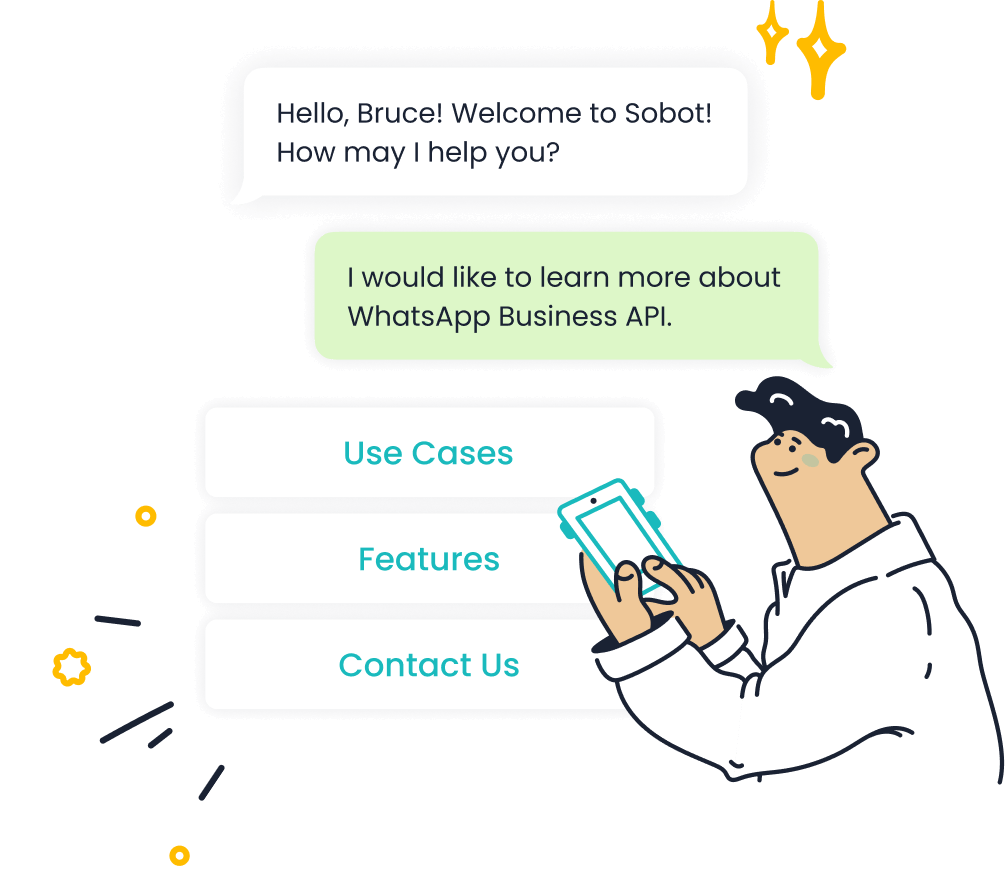
Sobot’s WhatsApp Business API integrates seamlessly with customer data platforms, enabling you to create highly personalized SMS campaigns. This approach not only enhances customer satisfaction but also drives conversions. For instance, Seattle Sun Tan used SMS integrated with CRM to send targeted promotions, generating $196,000 in sales.
Use Names and Purchase History for Relevance
Addressing customers by name adds a personal touch to your SMS. Including details like recent purchases or browsing history makes your messages more relevant. For example, "Hi Alex, your favorite sneakers are back in stock!" feels more engaging than a generic promotion.
Case studies highlight the success of personalized SMS. Nordstrom, for instance, used SMS to provide personalized style recommendations, strengthening customer relationships. These examples demonstrate how tailored communication can lead to enhanced customer engagement and loyalty.
Respect Customer Preferences
Avoid Sending Messages at Inconvenient Times
Timing plays a crucial role in SMS customer service. Sending messages at inappropriate hours can frustrate customers and harm your brand's reputation. Always consider your audience's time zones and daily routines. For instance, promotional messages sent during early mornings or late nights often go unread or, worse, lead to opt-outs. Studies show that messages sent between 9 AM and 12 PM achieve the highest engagement rates.
Automated scheduling tools, like those offered by Sobot’s WhatsApp Business API, can help you optimize delivery times. These tools analyze customer behavior and suggest the best times to send messages. By respecting your customers' schedules, you enhance their experience and increase the likelihood of positive interactions.
Allow Customers to Choose Their Preferred Channels
Giving customers control over how they receive communication strengthens trust and satisfaction. While SMS is a highly effective channel, some customers may prefer email or app notifications for specific updates. Offering options ensures you meet their expectations.
Research highlights that 75% of consumers prefer SMS for promotional content, while SMS marketing boosts average sessions per user by 52%. These statistics confirm the importance of respecting channel preferences. Sobot’s solutions allow seamless integration across multiple platforms, enabling you to cater to diverse customer needs without compromising efficiency.
Monitor and Optimize Performance
Track Metrics Like Response Time and Satisfaction
Tracking performance metrics ensures your SMS strategy remains effective. Key indicators include response time, customer satisfaction, and engagement rates. Faster response times often lead to higher satisfaction levels. For example, businesses using SMS report a 45% response rate, significantly higher than email.
Sobot’s WhatsApp API provides detailed analytics to monitor these metrics. Features like real-time tracking and data visualization help you identify areas for improvement. By focusing on measurable outcomes, you can refine your approach and deliver better results.
Continuously Improve Based on Feedback
Customer feedback is a valuable resource for optimizing your SMS campaigns. Regularly collect input through surveys or direct responses. Analyze this data to identify trends and address recurring issues. Metrics like list growth, revenue impact, and message engagement offer insights into your strategy's effectiveness.
For example, tracking opt-out trends can reveal if your messages are too frequent or irrelevant. Sobot’s tools simplify this process by integrating feedback collection into your SMS workflows. Continuous improvement ensures your campaigns remain relevant and customer-focused.
Common Pitfalls to Avoid in SMS Customer Service

Over-Messaging Customers
Risk of Annoying or Alienating Customers
Sending too many messages can overwhelm your audience and lead to frustration. Customers often feel harassed when they receive excessive or irrelevant messages. Research shows that 12% of consumers experience marketing fatigue, while 41% feel harassed by frequent emails. Although sms is a preferred channel for quick communication, overusing it can alienate your customers.
To avoid this, focus on quality over quantity. Ensure every message adds value to the recipient. For example, instead of sending daily promotions, prioritize updates that are timely and relevant. This approach helps maintain customer trust and engagement.
| Key Findings | Statistics |
|---|---|
| Preference for Email | Over two-thirds prefer email for marketing |
| Marketing Fatigue | 12% feel overwhelmed by marketing messages |
| Harassment from Emails | 41% feel harassed by too many messages |
| Irrelevant Messages | 40% cite irrelevance as a reason for fatigue |
Importance of Setting Frequency Limits
Establishing clear frequency limits is essential for effective sms communication. Customers appreciate brands that respect their time and preferences. For instance, sending one or two messages per week strikes a balance between staying connected and avoiding annoyance. Tools like Sobot’s WhatsApp API can help you automate and schedule messages, ensuring you don’t exceed acceptable limits.
Ignoring Compliance Requirements
Legal Risks of Non-Compliance
Failing to comply with sms regulations can result in severe consequences. Businesses risk financial penalties of up to $1,500 per unsolicited message. Non-compliance may also lead to class action lawsuits, which can drain resources and damage your reputation.
| Risk Type | Description |
|---|---|
| Financial Penalties | Fines of up to $1,500 per unsolicited message |
| Class Action Lawsuits | Costly legal battles from consumer lawsuits |
| Reputational Damage | Loss of consumer trust due to non-compliance |
Damage to Brand Reputation
Ignoring compliance doesn’t just hurt your finances—it also erodes trust. Customers expect transparency and respect for their privacy. By adhering to regulations like the TCPA or GDPR, you demonstrate your commitment to ethical practices. Sobot’s solutions ensure compliance by offering features like opt-in management and secure data storage.
Lack of Personalization
Generic Messages Leading to Disengagement
Generic sms messages fail to capture attention. Customers want personalized experiences that reflect their preferences. Studies reveal that 71% of customers expect personalization, and 77% feel frustrated by irrelevant notifications. Without personalization, your messages risk being ignored or deleted.

Missed Opportunities to Build Loyalty
Personalization isn’t just about engagement—it’s also a loyalty driver. Brands that tailor their sms communication see higher retention rates. For example, using customer names or referencing past purchases can make your messages more meaningful. Sobot’s WhatsApp API integrates with customer data platforms, enabling you to craft personalized campaigns that strengthen relationships.
Poor Response Management
Delayed Replies Frustrating Customers
Delayed responses can harm your customer service reputation. Customers expect quick resolutions, especially when using sms for support. Studies show that 90% of consumers rate an immediate response as important, with 60% defining "immediate" as under 10 minutes. When you fail to meet this expectation, frustration builds, and customer satisfaction drops.
For example, imagine a customer waiting hours for a simple query about their order status. This delay not only wastes their time but also reduces trust in your brand. Tools like Sobot’s WhatsApp Business API can help you avoid such scenarios. Its smart chat routing ensures that customer queries reach the right agent instantly, minimizing delays. Additionally, its 24/7 chatbot support provides immediate answers to common questions, keeping your customers satisfied even during peak hours.
Failing to Address Customer Concerns Effectively
Responding quickly is not enough if the response fails to resolve the issue. Poorly handled sms interactions can leave customers feeling ignored or undervalued. Research indicates that 78% of customers will stop doing business with a company after a poor service experience. This highlights the importance of addressing concerns thoroughly.
Effective sms communication requires clear, actionable responses. For instance, if a customer reports a billing error, your reply should include steps to resolve it, such as confirming the correction or providing a timeline for resolution. Sobot’s WhatsApp API enhances this process by integrating with customer data platforms. This allows agents to access relevant information instantly, ensuring accurate and effective responses. By leveraging such tools, you can turn potential complaints into opportunities to build loyalty.
Leveraging Sobot's WhatsApp API for SMS Customer Service
Features of Sobot's WhatsApp API
Bulk Messaging and Smart Chat Routing
Sobot's WhatsApp API simplifies SMS communication with bulk messaging and smart chat routing. Bulk messaging allows you to send updates, promotions, or alerts to multiple customers simultaneously. This feature ensures efficiency, especially during high-demand periods. Smart chat routing directs customer inquiries to the most suitable agent or department, reducing response times and improving satisfaction.
These features enhance operational efficiency and customer experience. For example, multi-login functionality enables multiple agents to manage conversations from a single account. Workflow automation further streamlines repetitive tasks, saving time and resources. The table below highlights key features that improve messaging efficiency:
| Feature | Description |
|---|---|
| Multi-login | Allows multiple users to access the account simultaneously. |
| Data Analytics | Provides insights into messaging performance and customer interactions. |
| Workflow Automation | Automates repetitive tasks to streamline communication processes. |
| Broadcast Message | Enables sending messages to multiple recipients at once. |
24/7 Chatbot Support for Enhanced Efficiency
Sobot's WhatsApp API includes 24/7 chatbot support, ensuring your SMS customer service operates round the clock. The chatbot handles common queries instantly, such as order tracking or FAQs, reducing the workload for your team. This feature guarantees that customers receive immediate assistance, even outside business hours.
For instance, businesses using Sobot's chatbot report an 85% problem resolution rate and a 95% customer satisfaction rate. These metrics demonstrate how automated support can enhance efficiency and build trust. By integrating this feature, you ensure your customers always feel supported.
Success Stories with Sobot
J&T Express: A 35% Increase in Delivery Rates
J&T Express, a global logistics provider, leveraged Sobot's WhatsApp API to improve SMS communication. The API enabled automatic messaging for order confirmations and address verifications. This streamlined process led to a 35% increase in delivery rates and a 50% reduction in costs. Additionally, the cash-on-delivery collection rate improved by 40%.
These results highlight the API's ability to optimize logistics operations. By automating repetitive tasks and enhancing communication accuracy, J&T Express achieved significant operational improvements and customer satisfaction.
How Sobot's Solutions Improved Customer Satisfaction
Sobot's WhatsApp API has consistently delivered exceptional results in SMS customer service. Businesses using the API report a 96% increase in positive feedback and a 97% CSAT score. The chart below illustrates the impact of Sobot's solutions on customer satisfaction metrics:

These achievements demonstrate how Sobot's tools enhance customer interactions. By integrating features like data analytics and workflow automation, you can improve response times, accuracy, and overall satisfaction.
SMS customer service remains a game-changer in 2025. Its 98% open rate ensures your messages reach customers faster than email, making it a reliable tool for immediate communication. Personalization, like including names or order details, enhances customer satisfaction by creating meaningful connections. Compliance with regulations, such as obtaining explicit consent, builds trust and protects your brand.
By following these tips, you can elevate your SMS strategy. Tools like Sobot’s WhatsApp Business API simplify personalization and compliance, ensuring seamless communication. Start implementing these strategies today to deliver exceptional customer experiences.
FAQ
1. What makes SMS customer service so effective?
SMS customer service excels due to its 98% open rate and average response time of 90 seconds. Customers appreciate its speed and simplicity. Tools like Sobot’s WhatsApp Business API enhance this by offering features like 24/7 chatbot support and smart chat routing, ensuring instant and efficient communication.
2. How can I personalize SMS communication effectively?
You can personalize SMS by using customer data, such as names or purchase history. For example, sending a message like, "Hi Sarah, your favorite coffee is back in stock!" feels more engaging. Sobot’s WhatsApp API integrates with data platforms, making personalization seamless and impactful.
3. Is SMS customer service cost-effective for small businesses?
Yes, SMS is highly cost-effective. Domestic messages cost as little as $0.01, while international ones range from $0.05 to $0.15. Sobot’s WhatsApp API further reduces costs by automating workflows and scaling operations, making it ideal for businesses of all sizes.
4. How does Sobot ensure compliance with SMS regulations?
Sobot’s solutions, like the WhatsApp Business API, include features for managing opt-ins and opt-outs. These tools help you comply with regulations like GDPR and TCPA. For example, you can securely store consent records and provide clear unsubscribe options in every message.
5. Can SMS customer service work for global audiences?
Absolutely! SMS, combined with Sobot’s WhatsApp API, ensures 24/7 availability and supports multiple languages. Automated scheduling tools optimize delivery times across time zones, making it easy to connect with customers worldwide. This accessibility enhances engagement and satisfaction on a global scale.
See Also
10 Strategies to Enhance Customer Satisfaction in Live Chat
10 Guidelines for Selecting Social Media Support Tools
Top Best Practices for Quality Management in Call Centers
